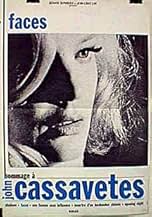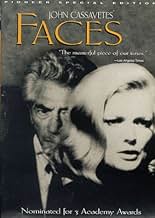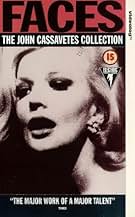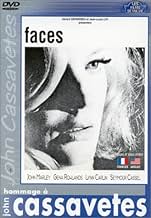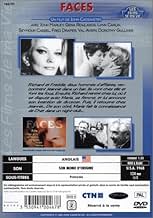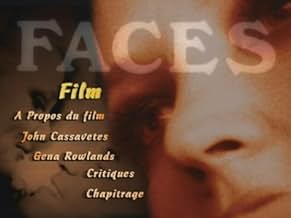Füge eine Handlung in deiner Sprache hinzuA middle-aged man leaves his wife for another woman. Shortly after, his ex-wife also begins a relationship with a younger partner. The film follows their struggles to find love amongst each ... Alles lesenA middle-aged man leaves his wife for another woman. Shortly after, his ex-wife also begins a relationship with a younger partner. The film follows their struggles to find love amongst each other.A middle-aged man leaves his wife for another woman. Shortly after, his ex-wife also begins a relationship with a younger partner. The film follows their struggles to find love amongst each other.
- Für 3 Oscars nominiert
- 5 Gewinne & 9 Nominierungen insgesamt
- Comedian
- (as George Dunne)
Empfohlene Bewertungen
This was one of the most influential films of the 1960s, if you consider how it inspired Robert Altman and Woody Allen, as well as employing Steven Spielberg as a production assistant while he was still making short films and had not yet broken into feature films.
How well the film has aged is debatable. While its influence is clear, the film itself is not necessarily the most fun. Some have called it "meandering", and it is hard to believe that at one point Cassavetes had a six-hour cut (allegedly).
Basically, except for the poor dubbing that makes literally MOST of the dialogue in the film incomprehensible, I can't say there's anything about any individual sequences in the film that I disliked. HOWEVER, what I did have a problem with is this: the vanguard style of filmmaking, the characters, the situations they are in, the dialogue (if you want to call it that): does it all really come together to SAY anything? I didn't come away with any kind of an interesting or coherent message from the film. Which is fine if the scenes flow nicely together, but they really don't. Each scene as an entity unto itself is wonderful, but their juxtaposition together gets especially tiresome. I mean, for roughly 80% of the film, ALL of the characters onscreen are inebriated. Now, this makes it extremely difficult to get to know the characters beyond their buffoonish drunken altar egoes. Maybe, that was the point. I don't know. What I do know is that Cassavetes stubbornly refuses to reveal to us anything that even approximately resembles, plot, forward motion, or even... any kind of... an event... a happening until the last twenty minutes of the film when some interesting stuff finally happens. And this definitely alienates most audiences. Do you want to know why this movie has such a high rating? Because the people that didn't like it left after twenty-forty minutes. I know in the theater that I saw it in (a student film organization that watches intellectually stimulating independent fare weekly with warm response), the crowd of twenty people had been reduced by the end of the film to me, the president of the club (who was reading), and one other guy (whom I have a suspicion, fell asleep during at least part of the film) in the theater. EVERYBODY else got frustrated. Draw your own conclusions.
It is a deep exploration of manhood in America, of the power games that men play with women, and of the other kinds of games women victimize themselves with. Deeper than Citizen Kane, more abrasive than Magnolia or American Beauty, Faces turns the camera on the ordinary, everyday ways men and women treat each other. It wants to get under your skin, and if you allow it to, without giving up or shutting your mind to it, it will profoundly enlighten you.
I also want to highly recommend a stunning book about Cassavetes that makes a nice companion piece to a viewing of the film. Ray Carney's Cassavetes on Cassavetes book (or his web site devoted to Cassavetes) has almost 100 pages about the making of this film. Both throw more light on how Cassavetes got the amazingly intimate and exposed performances he did.
But trust me, this film can change your life. It is one of the greatest works of art in all of film. And the resistance it meets with is proof of it
Wusstest du schon
- WissenswertesWhile filming a part on Bob Hope Presents the Chrysler Theatre (1963), John Cassavetes saw Steven Spielberg lurking around the set, as he was then in the habit of doing. Cassavetes approached Spielberg and asked what he wanted to be. When Spielberg replied he wanted to be a director, Cassavetes allowed the young man to direct him for the day. He later invited Spielberg to work on this film with Spielberg serving as an uncredited production assistant on Gesichter (1968) for two weeks.
- Zitate
Maria Forst: There's a Bergman film in the neighborhood.
Richard Forst: I don't feel like getting depressed tonight.
- VerbindungenFeatured in Cinéastes de notre temps: John Cassavetes (1969)
- SoundtracksLove Is All You Really Want
Written by Jack Ackerman
Top-Auswahl
- How long is Faces?Powered by Alexa
Details
Box Office
- Budget
- 275.000 $ (geschätzt)
- Weltweiter Bruttoertrag
- 7.236 $
- Laufzeit2 Stunden 10 Minuten
- Farbe
- Sound-Mix
- Seitenverhältnis
- 1.66 : 1
Zu dieser Seite beitragen



